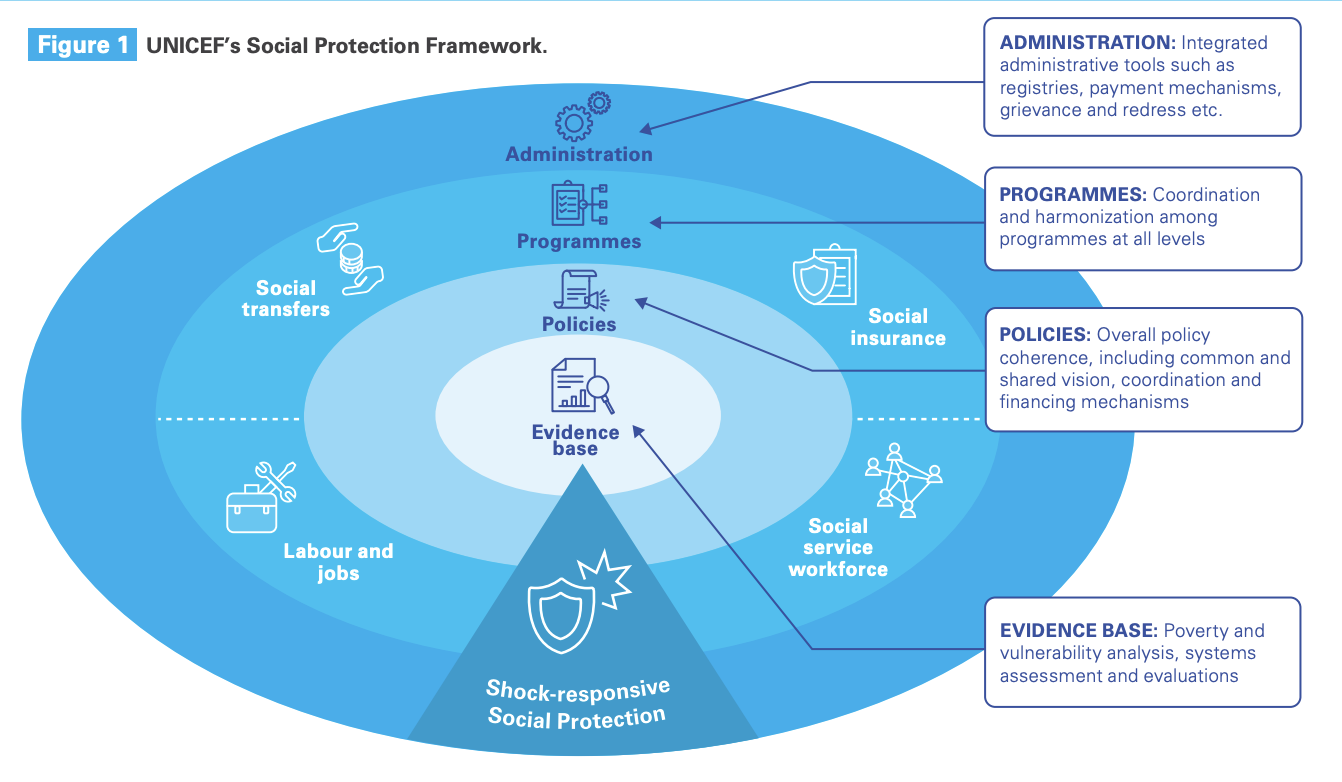Strengthening Shock-Responsive Social Protection Systems
Social protection can play an important role in helping families prepare for, cope with and recover from shocks and stresses.
Image

From the growing number and severity of climate disasters to ongoing political upheaval, the number of children and families living in communities vulnerable to shocks and facing emergency situations is growing, with potentially devastating impacts on children and their childhoods.
When crisis hits, effective social protection support is often a crucial factor in determining whether children can quickly return to normality or if their life paths will be permanently altered. All too often, however, national systems are either too weak to respond, or are not designed to have the flexibility to adjust, for example, by rapidly expanding to reach those who need support or by temporarily increasing transfer size while families and communities recover.
The United Nations Children’s Fund (UNICEF), along with partners such as the World Bank, European Commission, International Labour Organization, World Food Programme and United Nations High Commissioner for Refugees, is increasing its focus on supporting governments to strengthen social protection systems so they are ready to respond. This guidance supports this transition, outlining UNICEF’s approach to shock-responsive social protection and providing practical tools and resources. It aims to aid UNICEF colleagues, as well as partners inside and outside of governments, as we work together to build and strengthen shock-responsive social protection systems.
This guidance focuses on social transfers, especially cash transfers, as proven programmatic responses and an integral part of social protection systems in both development settings and humanitarian response, and is an area in which UNICEF has significant expertise. Other important areas of social protection programming, such as social insurance, public works and school feeding, are areas for further exploration for UNICEF in coordination with key partners in these areas.




